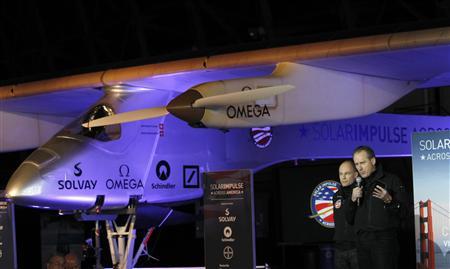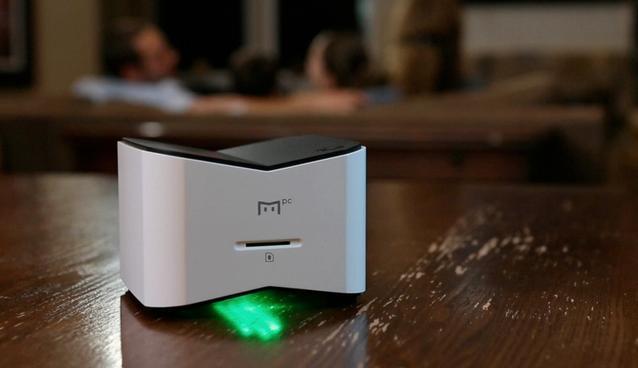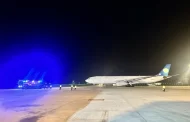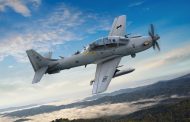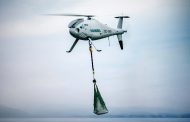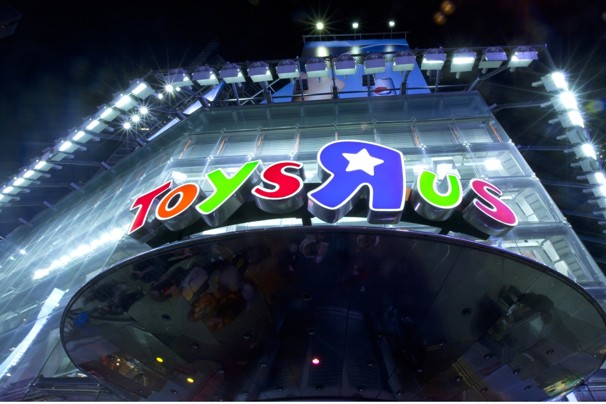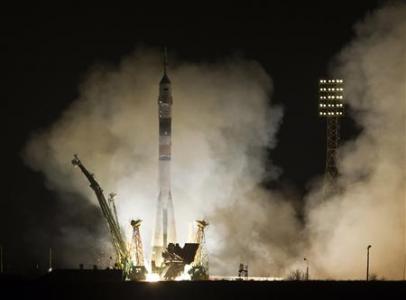
The Soyuz TMA-08M spacecraft carrying the International Space Station (ISS) crew of U.S. astronaut Chris Cassidy and Russian cosmonauts Pavel Vinogradov and Alexander Misurkin blasts off from the launch pad at the Baikonur cosmodrome March 29, 2013.
Two Russian cosmonauts and a U.S. astronaut took a short cut to the International Space Station on Thursday, arriving at the orbital outpost less than six hours after their Soyuz capsule blasted off from the Baikonur Cosmodrome in Kazakhstan.
The express route, used for the first time to fly a crew to the station, shaved about 45 hours off the usual ride, allowing NASA astronaut Chris Cassidy and Russian cosmonauts Pavel Vinogradov and Alexander Misurkin to get a jumpstart on their planned 5.5-month mission.
The crew’s Soyuz capsule parked itself at the station’s Poisk module at 10:28 p.m. EDT (0228 GMT Friday), just five hours and 45 minutes after launch.
All previous station crews, whether flying aboard NASA’s now-retired space shuttles or on Russian Soyuz capsules, took at least two days to reach the station, a $100 billion research laboratory that flies about 250 miles above Earth.
“The closer the station, the better we feel. Everything is going good,” the cosmonauts radioed to flight controllers outside of Moscow as the Soyuz capsule approached the orbital outpost, a project of 15 nations.
On hand to greet the new crew were Expedition 35 commander Chris Hadfield, with the Canadian Space Agency, NASA astronaut Thomas Marshburn and cosmonaut Roman Romanenko.
Russia tested the expedited route, which required very precise steering maneuvers, during three unmanned station cargo flights before allowing a crew to attempt it.
“Ballistics is a difficult thing. If for some reason you are not able to correct the orbit of the station or they have to avoid space debris … that can disrupt this method,” said Igor Lisov, an expert at the Russian publication Novosti Kosmonavtiki.
The advantage, however, is that the crew doesn’t have to stay for two days inside the cramped Soyuz capsule. It also means they can arrive before any disabling effects of adapting to microgravity, which can include nausea, dizziness and vomiting, and that medical experiments and samples can arrive at the station sooner, enhancing science results.
Russian engineers began looking at new flight paths to reach the station about three years ago, Vinogradov said at a prelaunch press conference.
“At first everybody was really apprehensive about it, but later on our ballistic specialists calculated the possibility, looked at the rocket and verified the capabilities of the Soyuz vehicle, which now has a digital command-and-control system and an onboard computer that can do pretty much anything,” he said.
Russian engineers already are looking into cutting the trip time to two orbits, Vinogradov added.
Source : Reuters







